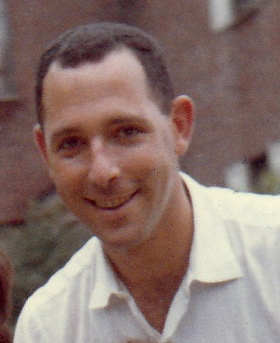John M. Freeman
| John M. Freeman | |
|---|---|

Freeman in 1962.
|
|
| Born |
John Mark Freeman January 11, 1933 Brooklyn, New York, U.S. |
| Died | January 3, 2014 (aged 80) Baltimore, Maryland, U.S. |
| Citizenship | American |
| Alma mater |
Amherst College Johns Hopkins Medical School |
| Known for |
Ketogenic diet Hemispherectomy |
| Spouse(s) | Elaine Kaplan Freeman (m. 1956) |
| Children | Andrew; Jennifer; Joshua |
| Scientific career | |
| Fields | Pediatric Neurology |
| Institutions |
Walter Reed Army Medical Center Stanford University Johns Hopkins Hospital |
John Mark Freeman (January 11, 1933 – January 3, 2014) was an American pediatric neurologist specializing in epilepsy. He is known for bringing two long-abandoned treatments for pediatric epilepsy back into popular use. One, the ketogenic diet, is a carefully managed, high-fat diet plan that reduces the incidence of seizures in children during and after its use, and the other, the hemispherectomy, is a drastic surgical procedure in which part or all of one highly seizure-prone hemisphere of the brain is removed to alleviate severe epilepsy.
Freeman was born in Brooklyn, New York, the son of Florence (née Kann) and Leon Freeman, and raised in Great Neck, New York. He graduated from Deerfield Academy in Massachusetts in 1950 and from Amherst College in 1954.
Freeman received his M.D. from Johns Hopkins School of Medicine and did his internship and residency there from 1958 to 1961. With a training fellowship from the National Institutes of Health, he trained in pediatric neurology under Dr. Sidney Carter at the Columbia University Medical Center from 1961 to 1964 and served at the U.S. Army's Walter Reed Army Institute of Research from 1964 to 1966. He was a faculty member at Stanford University from 1966 to 1969. In 1969, he returned to Johns Hopkins Hospital as the founding head of the Pediatric Neurology Service and head of the Hopkins Birth Defects Treatment Center, and assumed leadership of the pediatric epilepsy clinic in 1972. He served as the head of those divisions until 1990, becoming a full professor of pediatrics and neurology along the way, and in 1991 he became the first Lederer Professor of Pediatric Epilepsy at Hopkins and director of the Pediatric Epilepsy center, which was named in his honor.
...
Wikipedia
